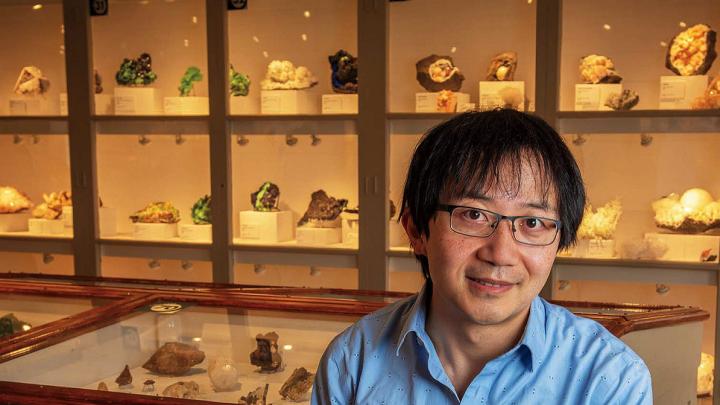In the year and a half between college (at Harvard) and graduate school (at MIT), Roger Fu ’09 lived in an isolated village in the mountains of southern Chile, learning to speak Mapuche with his neighbors and studying indigenous astronomy. People there, he says, understood the stars “based on their role in the night, rather than the physical object”: a star rising at 8 p.m. always carried the same name, even as the earth and heavens rotated. And, he observed, “When you talk about astronomy, everyone’s interested. Understanding what’s in the sky, where everything came from—it’s part of the human need.” For him, too: now Loeb associate professor of the natural sciences in the department of earth and planetary sciences (his undergraduate concentration), Fu studies paleomagnetics, analyzing “the oldest possible rocks”—found in places like northwestern Australia, South Africa, Canada, and Minnesota—to reconstruct magnetic fields from eons ago. In the 1950s, paleomagnetics provided early evidence of plate tectonics, and in a recent study, Fu determined that the continents were in motion at least 3.25 billion years ago, 500 million years earlier than previously thought. He has analyzed Martian meteorites and found that the planet had a strong magnetic field 3.9 billion years ago, which would have supported a thicker atmosphere—and a wetter, more habitable surface. All this research is enabled, Fu says, by the Quantum Diamond Microscope, a magnetometer developed in his lab that can measure tiny samples and identify specific magnetized particles. Describing it, Fu sounds as excited as he was at 11, when he received a telescope for Christmas and stumbled across Jupiter, with its moons and cloud belt, on the first night. He still stargazes for fun—Harvard Forest is a favorite spot—but after having a son last fall, his gaze is more often nearer to home.
Roger Fu

Roger FuPhotograph by Stu Rosner
You might also like
Breaking Bread
Alexander Heffner ’12 plumbs the state of democracy.
Reading the Winds
Thai sailor Sophia Montgomery competes in the Olympics.
Chinese Trade Dragons
How Will China’s Rapid Growth in the Clean Technology Industry Reshape U.S.-China Policy?
Most popular
More to explore
Harvard Philosophy Professor Alison Simmons on "Being a Minded Thing"
A philosopher on perception, the canon, and being “a minded thing”







